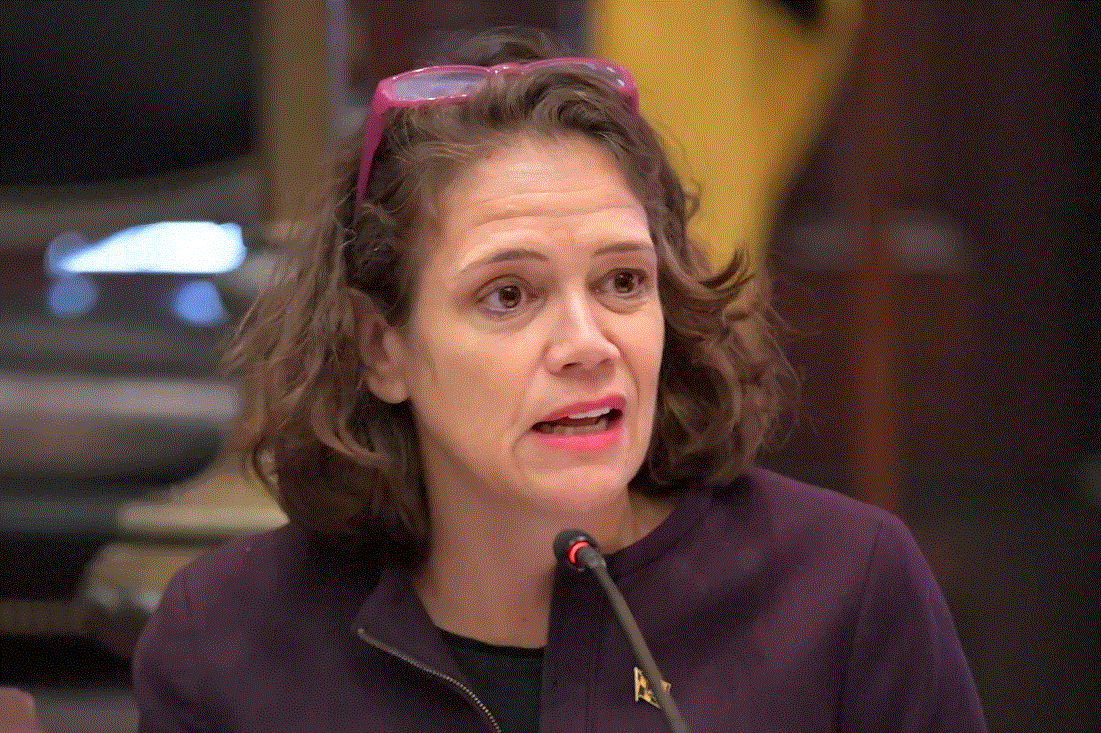
Councilmember Odette Ramos speaks at a hearing on the need for more bilingual Spanish-speakers in city services to respond to emergencies and 911 calls.
Did a council member just try to extort Johns Hopkins?
Originally published in the Baltimore Sun
Extortion is “the practice of obtaining something, especially money, through force or threats.” Thanks to the excellent reporting of The Baltimore Sun’s Emily Opilo (“Baltimore Councilwoman Odette Ramos defends intent behind list of demands to Hopkins,” July 19), Baltimoreans can judge how closely the conduct of one of their elected leaders conforms to that definition.
In a nutshell, Councilwoman Odette Ramos demanded that Johns Hopkins University contribute tens of millions of dollars toward some of her pet projects (a trust fund for “affordable housing,” a “land bank,” additional investments in her district and even a dog run) or she would introduce a bill to change zoning for colleges in the city, thus erecting a major barrier to Hopkins’ plans for an AI Institute near its Homewood campus.
Ramos now says that the items on her shopping list were mere “negotiating points,” but her flat statement to Hopkins that “commitments are needed on each item to avoid introduction of the ordinance” reads like a threat. A reasonable person might translate this as “Nice institute you’re planning here — pity if anything bad happened to it.”
Hopkins officials said they were “shocked” by the councilwoman’s tactics. Sadly, though, this is all too common in Baltimore politics where a pay-to-play ethic prevails and many so-called progressive politicians see Baltimore’s leading enterprises as targets of opportunity. They routinely raise the costs of operating in the city — with high tax rates and problematic mandates and regulations — but will make “concessions” (with TIFs, PILOTs, or other special exemptions) only after these enterprises make approved “commitments” or campaign contributions.
Flexing one’s political muscle in this way might satisfy certain interest groups in the short run, but sends a terrible message about the city’s climate for business and investment. No surprise, then, that Baltimore is in its eighth straight decade of population decline. There are many reasons for this, of course, but one should add a corrupt political culture to the list.
— Christopher B. Summers, Rockville






